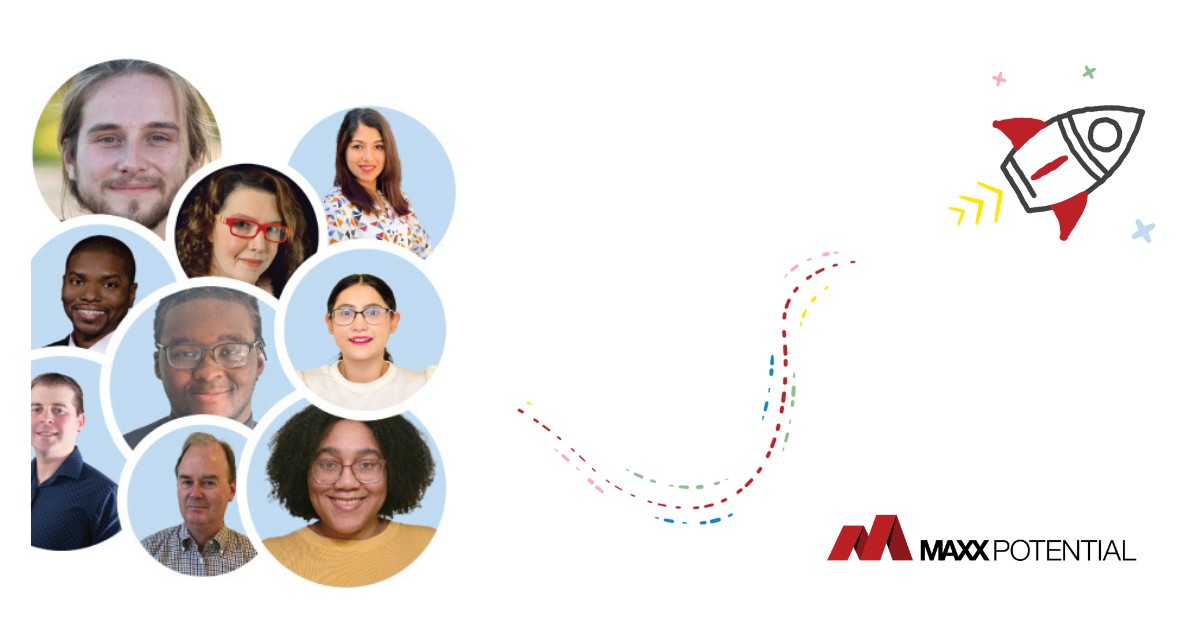Why the Push for More Tech Skills in Schools Might Be Misguided
Employers Rate Critical Thinking at 98.5% Importance but New Job Seekers are Rated at 55.8% Readiness
By MAXX Potential
- Posted:
- Education

The rise of Artificial Intelligence has brought a tsunami of rapid changes, completely upending what we have known. This wave of change requires a pivot. A concerning trend has bobbed to the surface where educators continue to focus on training students for jobs that are increasingly being automated.
Technology education often primarily focuses on coding, and while that hard skill continues to be important right now for technologists, tech jobs are changing. The push for more tech skills in schools serves a purpose. And now it’s time to consider what skills will always be essential to the workforce, whether it’s a tech career pathway or not. Human skills, such as problem-solving, critical thinking, and communication, are the flotation devices needed for the flood of change crashing on our shores.
Pushing for an Emphasis on People Skills
Employers are seeking well-rounded individuals who have tech knowledge alongside critical thinking, ethical considerations, and soft skills such as communication and collaboration. Technical skills might be the beacon that lands the job, and it’s the strong human skills that will pull you into more opportunities.
“Specialists were definitely penalized by the market. Not only were they less likely to receive multiple offers, but they were offered smaller signing bonuses. In some cases the specialists earned up to $48,000 less than their generalist peers.” A June 2016 article in the Harvard Business Review reported.
If the goal of education is to prepare students for their future career and employability, then it stands to reason that educational institutions need to pair the push for more technical skills with general education that will outfit students with opportunities to flex their communication skills, work ethic, and emotional intelligence. That’s something we like to emphasize at MAXX Potential with the Internship Simulator to provide opportunities for students to exercise their human skills alongside their technical skills.
“Analysis of 12 years of longitudinal data found that those who devoted about one-sixth of their time in high school to occupation-specific vocational courses earned at least 12% extra one year after graduating and about 8% extra seven years later (holding attitudes and ability in 8th grade, family background and college attendance constant). This was true both for students who did and did not pursue post-secondary education. Computer courses had particularly large effects on earnings eight years after graduating.” The Regional Educational Laboratory Program pointed out in “What does the research say about the effectiveness of career and technical education (CTE) programs on student outcomes (e.g., graduation rates, employment rates, and completion rates)?”
Like anything else, balance is required. The data above emphasizes that the students spent the majority of their time in general education courses while also pursuing their occupation-specific interests. Students who are heavily interested in the technology industry should be pursuing their interests while also developing the scope of their knowledge via general education such as English, History, Art, Logic & Critical Thinking.
Employers want well-rounded workers. According to the Higher Ed Dive press release the 2023 job outlook report from the National Association of Colleges and Employers shares that, “Only 47% of employers said they believed college graduates were proficient at communication — but 96% said communication was the most important competency they seek.”
Educational institutions sometimes over-emphasize the hard skills, but when it comes to helping students develop the most-wanted professional skills, there’s a gap.
Rethinking Career Technical Education in the Schools
How can educational institutions and the future workforce adapt to and thrive amidst the rapid changes in the tech industry? The tech industry is known for its evolving landscape and innovative outlook, and for years, that’s meant pointing curious future technologists towards coding challenges. Boiled down, the skills that technologists need an overabundance of are the human skills of communication, emotional intelligence, and collaboration.
NACE’s Job Outlook 2022 survey demonstrated that the biggest gaps in career readiness competencies come in the employer perceptions of importance and student proficiency. For example, employers rated Critical Thinking at a 98.5% importance, but they perceived student proficiency at 55.8% – that’s a 42.7% differential. Communication didn’t fare any better, demonstrating a 44.2% differential between student proficiency and employers’ importance level.
Employers want workers with a high level of professional competence. When educational institutions analyze how to better prepare their students for their future careers, this is where they need to look.
“All the skills employers seek revolve around human skills—or ‘Power Skills’,” says Mike Howells, President of Workforce Skills at Pearson, in Forbes. “Hard skills require constant retraining to stay up to date with the latest version of solutions and tools. What makes a difference in employee skills are the soft skills, like problem-solving or personal learning, which showcase individuals’ eagerness to continue growing and learning new skills throughout their career. Employers will be looking for these skills as they showcase a workforce that can remain competitive and expand with a company.”
A well-rounded technical education starts with critical thinking, ethical considerations, and soft skills – these skills will ensure technologists are adaptable, innovative, and collaborative within their work environments. Many of these skills can be learned from experiences such as internships or long-term group projects that require collaboration.
Mentorship is a key component to guiding students and fresh technologists in their career path and different work scenarios they may face day to day. It can be difficult to find a mentor who can come alongside a new technologist or a student, but data continues to demonstrate that mentorship can benefit workers in so many ways. The Harvard Business Review 2015 shared that 69% of individuals who had mentors believed that they were making better decisions.
Solving for IT Education and Career Preparation
To help students and new technologists ride the changing seas of technology and artificial intelligence, IT education needs something that incorporates a more in-depth career preparation to bridge the gap between academics and hands-on experience. Akin to an internship but within the confines of the educational system, students can grow their technical knowledge while also developing essential human skills in a collaborative environment. The reality of technical jobs is the ability to work on a long-term project along with peers, supervisors, and clients, which requires that tech education finds ways to prepare students for the workforce.
So many students get stuck in the Catch-22 of applying for an entry level job that requires some level of experience, and educational programs can be solving for this, from internships to other ways of gaining real world experience. Students would benefit from gaining hands-on experience with AI tools and technologies, automation processes, and critical thinking within the modern workforce.
MAXX Potential has combined IT education and career preparation into the Internship Simulator that bridges the gap between academics and hands-on experience.
This innovative platform allows participants to grow their technical knowledge while also developing essential human skills in a collaborative environment. Within the simulator, students tackle real-world problems faced by IT departments, working alongside peers and receiving guidance from experienced professionals.
By integrating technical training with robust human skills development, MAXX Potential ensures that participants are not only prepared for current job demands but are also equipped to adapt to future technological advancements. A balanced educational approach provides students with the resources they need to succeed in their career pathways, making them resilient and versatile in an increasingly automated world.
Interested in exploring how the Internship Simulator can integrate into your educational institution? Learn more about the Internship Simulator and contact us.
MORE POSTS
Why Smart Leaders Focus on Output, Not Headcount
The Invisible Drag: Why Your Team Works Hard but Can’t Get Ahead
By MAXX Potential When Brad decided to build his career in IT, he knew he needed a blueprint. What he didn’t know was that his



